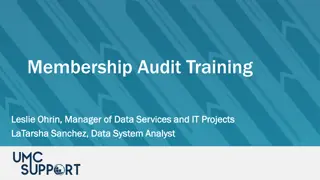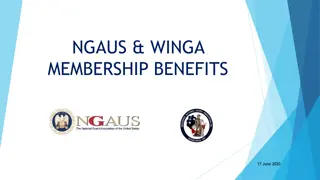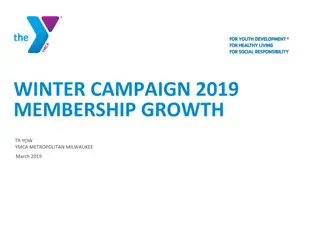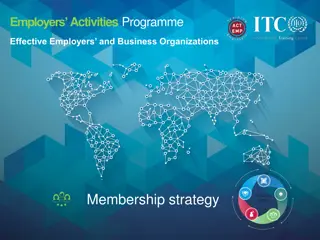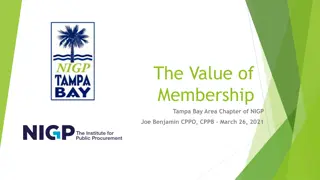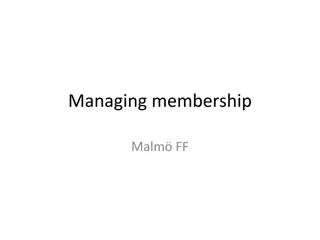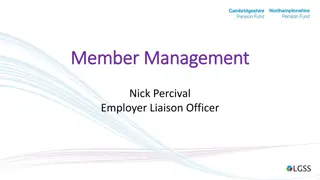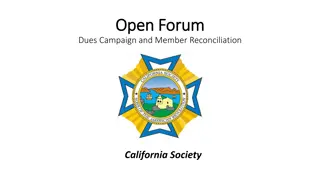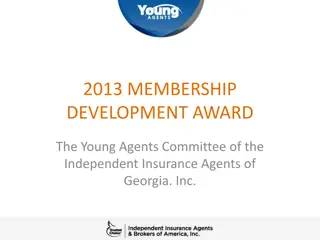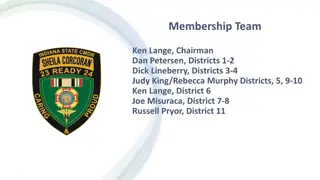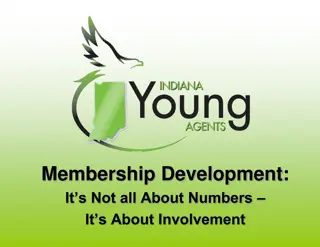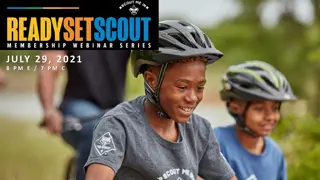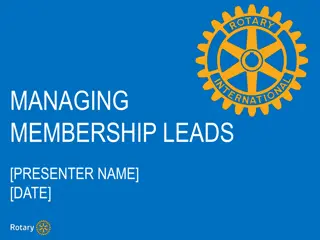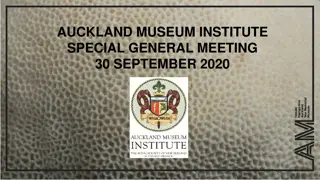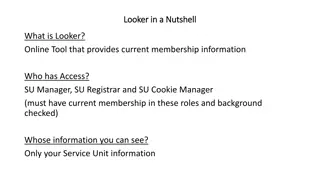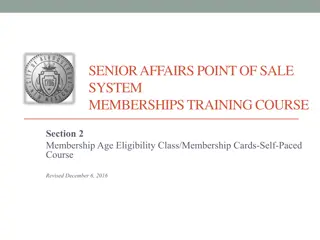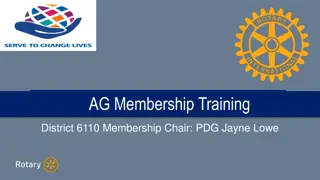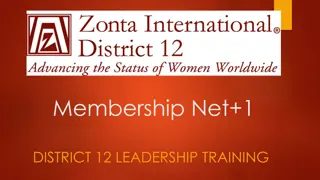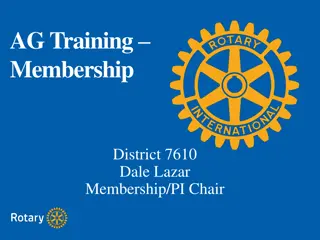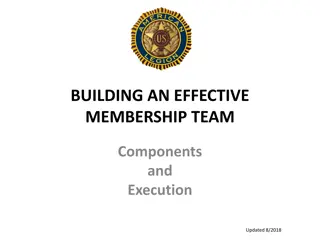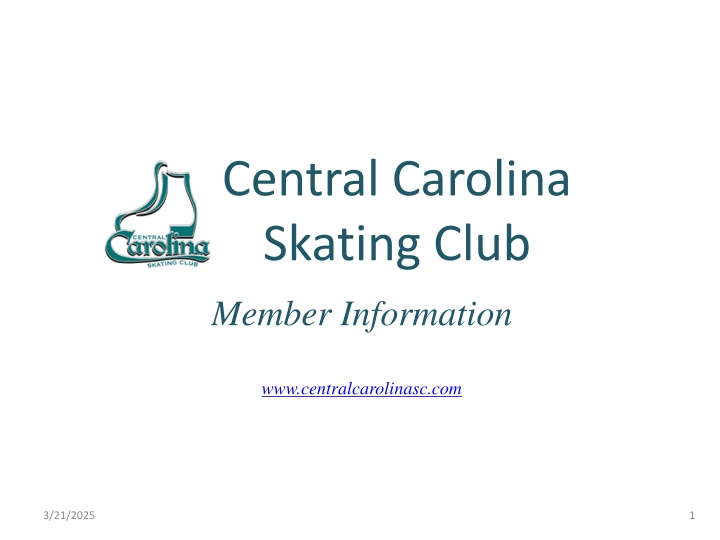
Central Carolina Skating Club Membership Information
Discover the Levels of Figure Skating Participation and Types of US Figure Skating Memberships offered by Central Carolina Skating Club. Learn about the benefits, opportunities, and traffic flow etiquette. Get insights on SafeSport, volunteerism, and board members in this informative guide for skaters and parents.
Download Presentation

Please find below an Image/Link to download the presentation.
The content on the website is provided AS IS for your information and personal use only. It may not be sold, licensed, or shared on other websites without obtaining consent from the author. If you encounter any issues during the download, it is possible that the publisher has removed the file from their server.
You are allowed to download the files provided on this website for personal or commercial use, subject to the condition that they are used lawfully. All files are the property of their respective owners.
The content on the website is provided AS IS for your information and personal use only. It may not be sold, licensed, or shared on other websites without obtaining consent from the author.
E N D
Presentation Transcript
Central Carolina Skating Club Member Information www.centralcarolinasc.com 3/21/2025 1
Table of Contents Page # Skating Skill Levels 3 Types of US Figure Skating Memberships 4 Member Benefits Provided by USFS 5 Member Benefits Provided by CCSC Benefits for All Membership Types Benefits that Vary Based on Membership Type Activity Grants 6 7 8 Reasons to Volunteer 9 Volunteer Opportunities 10 Traffic Flow and Ice Etiquette 12 SafeSport 13 Board Members 14 Links and Resources 15 3/21/2025 2
Levels of Figure Skating Participation An Introductory Guide for Parents and New Skaters Experienced Just starting Skater is enrolled in USFS Basic Skills group lessons Snowplow Sam Levels 1-3 Basic Skills Levels 1-8 Free Skate Levels 1-6 minor roles major roles Skater may perform in annual Sportsplex-sponsored holiday ice show (Nutcracker) Skater takes private lessons from a coach and JOINS CENTRAL CAROLINA SKATING CLUB Skater progresses through the standard USFS testing system Skater may compete with a synchronized skating team Skater may participate in free skating competitions1 Skaters may compete at the no test/beginner level before they have passed any standard USFS tests Official U.S. Figure Skating Test Levels Least difficult Pre-Preliminary Beyond no test/beginner, a skater s competition level is determined by his/her test level Preliminary US Figure Skating membership type* required for participation: Two tests must be passed at each level moves in the field and free skating Pre-Juvenile Juvenile - At all levels, the moves test must be passed before the free skating test Basic Skills Intermediate Novice Full - More difficult moves tests can be taken without passing lower level free skating tests, e.g., a skater may test Pre-Preliminary Moves and then Preliminary Moves before testing Pre-Preliminary Free Skating Junior *See next page Most difficult Senior 1 Includes many different disciplines (e.g., singles, pairs, dance) and events (e.g., moves in the field, compulsory moves, free skating, artistic, interpretive) 3/21/2025 3
Types of US Figure Skating Memberships Basic Skills Full Friends of Figure Skating Membership intended for skaters just beginning the sport Membership intended for skaters actively training, testing and/or competing and their parents (if skater is a minor) Membership intended for figure skating benefactors Minimal annual fee; ~10% of full membership cost Standard annual fee; less for additional family members Multi-tiered annual fee system (up to $10,000) Available through both rink learn-to-skate programs and local skating clubs (CCSC offers Basic Skills memberships) Available through local skating clubs (Central Carolina Skating Club) or through US Figure Skating national headquarters Available through US Figure Skating national headquarters Types of Full Membership Offered by CCSC First year of full USFS membership* Introductory Four-year membership for college students Collegiate Discounted fee One skater Secondary affiliation for skaters who want to join more than one skating club Associate One minor and one parent Junior with Parent Regular fee One or more skaters One adult (18 years of age or older) Senior Senior Couple Two adults Nuclear family, i.e., parents and children Family 3/21/2025 4 *Introductory membership is an initial, one-time membership option after Basic Skills
Member Benefits Provided by USFS Basic Skills Full Friends of Figure Skating Basic skills edition of SKATING magazine (issued 1x/year) Subscription to SKATING magazine (issued 10x/year) Subscription to SKATING magazine Additional benefits are available commensurate with donation amount, e.g., quarterly calls from athletes, priority seating at US Figure Skating events, hospitality passes and all-event tickets to the US Figure Skating National Championships. Official membership card Official USFSA membership card Supplemental sports accident insurance coverage Supplemental sports accident insurance coverage Brightly colored record book with stickers to track progress Eligibility for USFS-sanctioned events, including tests and competitions Membership year patch Certificate of accomplishments for passing tests and placing at qualifying events Special offers and discounts from US Figure Skating corporate partners Key benefit that typically prompts skaters and/or parents to join Central Carolina Skating Club which provides full USFS membership Joining a club after group lessons is the first step to becoming a more advanced skater Every club offers different membership packages and benefits. Joining a club is an important step in a figure skater s life, as this becomes your training home. Once a skater is ready to take official U.S. Figure Skating tests or compete in competitions beyond Basic Skills, joining a club becomes necessary. (US Figure Skating website) 3/21/2025 5
Additional Member Benefits Provided by CCSC Benefits Included for All Membership Types Events Spring and fall membership meetings Skating exhibition, followed by a meal and meeting to inform members about club happenings and recognize skater achievements Test medals are distributed and awards are given. Test medals are purchased by the club and include a 14K gold pin awarded to each skater who passes a Senior-level test Test sessions CCSC sponsors local test sessions at the Orange County Sportsplex. Travel and accommodations are provided for qualified judges as needed. CCSC members pay a reduced fee for CCSC sponsored tests. Exhibitions CCSC sponsors periodic exhibitions, often prior to important competitions, to give skaters a chance to practice their programs on clean ice in front of a small, supportive audience of parents and other club members Awards CCSC Award Annual award given to a club member based on dedication, service and support. Awarded at the spring membership meeting Kevin Elvin Award Annual award given to a club member based on exceptional volunteer efforts. Awarded at the CCSC Classic competition Frances Jesel Award Annual award given to a club member who is actively competing based on good sportsmanship and support of other club members. Awarded at the fall membership meeting Information Sharing and Community Web site CCSC maintains an active website with information about local figure skating happenings and news about our club members (www.centralcarolinasc.com) Recognition plaque A plaque is displayed in the lobby of the Orange County Sportsplex recognizing CCSC skaters who have passed Senior-level tests Community and camaraderie The CCSC community actively supports all skaters. Our club members typically train together and support one another at tests and competitions. Parents and other adult club members work together to organize events and provide information about all aspects of figure skating 3/21/2025 6
Additional Member Benefits Provided by CCSC Benefits vary by membership type Junior with Parent Senior Couple Membership Type Family Senior Collegiate Introductory Associate Basic Skills $37.501 Annual Cost $215 $175 $190 $125 $75 $75 $20 Governance One vote per member 18 years of age No voting rights Voting Board Membership2 Members 18 years of age are eligible Ineligible Financial Support3 Up to $254 Membership Discount Ineligible Ineligible Up to $504 Up to $254 Activity Grants Ineligible Eligible Benefit requires volunteer hours at CCSC-sponsored events (see page 10) 1One-time payment of $150 for four-year membership 2Must be a club member for at least 12 months prior to election 3Financial support is contingent upon volunteering for the club 4Five dollar discount earned for every hour of volunteer service, applied to following year s membership dues (see slide 10) 3/21/2025 7
Activity Grants Provided by CCSC Amount Reimbursed at Year-End (June 30th) Pairs/Dance1 Activities Subsidized for CCSC Skaters Individuals Synchro Tests hosted by CCSC 1/3 of test fees -- Non-qualifying competitions2 $25 $25 -- Regionals (or Sectionals when qualification at Regionals is not required) $130 $75 Entry fee Sectionals $250 $187.50 -- Nationals $375 $281.25 $1200 Activities Subsidized for Judges, Officials and Coaches Trial judging for tests or competition appointments above Bronze and/or attendance at PSA or USFS seminars Up to $1303 -- -- CCSC is dedicated to supporting its member skaters of all disciplines, abilities and ages through financial assistance. Financial support decisions are made on a year-by-year basis by the CCSC Board of Directors based on the club s financial status. Support payments are made at the end of the fiscal year only when funds are available. The order of priority will be as follows: skaters, judges/officials, coaches. Benefit requires volunteer hours at CCSC sponsored events 1Amount paid is $150 per team ($75 per skater) of singles grants due to shared coaching fees 2Includes ONE of the following: CCSC Classic, Non-qualifying Regionals, Adult Sectionals or Non-qualifying Adult Nationals 3Amount equivalent to grant provided to skaters at the regional qualifying level 3/21/2025 8
Reasons to Volunteer No one is paid! CCSC is governed and staffed entirely by volunteers who love skating and want to help provide the best opportunities for local skaters (who are often our own children) US Figure Skating judges and officials are also volunteers It s good for your kids! Volunteering for CCSC sets a good example for your children As children get older, they can also volunteer for the club, e.g., by being a runner at competitions, helping to set-up for events or helping to cleanup after events It helps you learn! Volunteering is a great way to learn about the structure of skating tests and competitions It s fun! Volunteering is a great way to get to know other club members and to enjoy the camaraderie that comes from shared experiences and the pride of producing successful events We need your skills! Let us know about your skills and talents! There are financial benefits! The club s activity grants are only available to individuals and families who support the club by volunteering their time 3/21/2025 9
CCSC Volunteer Opportunities Membership Discount Volunteer Hours Activity Grant Hours applied for membership discount Minimum hours to receive an activity grant Membership Types - Family - Junior with Parent - Senior Couple Up to 10 hours per family ($5/hour; up to $50 discount) Additional 10 hours per family - Senior - Collegiate Up to 5 hours per person ($5/hour; up to $25 discount) Additional 5 hours per person Opportunities1 Duration of Event Volunteer Activities Annual CCSC-Sponsored Competitions2 4 full days, 1x/year Hospitality: Provide food for the judges hospitality room; manage food Registration desk: Help skaters check in; serve as information resource Announcer: Announce warm-ups and introduce each skater before he/she takes the ice Awards: Announce results and distribute medals Ice monitor: Liaise between officials and coaches at the entrance to the ice Runners: Transport papers between the judges and competition officials Set-up and Cleanup: Move equipment to and from storage areas - - CCSC Classic Synchro Classic Test Sessions 5 hours, 6x/year Hospitality: Contribute a dish to create meals for judges Music: Operate the CD player for dance and free skating tests Set-up and Cleanup: Move equipment to and from storage areas Membership Meetings 4 hours, 2x/year Provide a dish for potluck Board of Directors 2 hours, 1x/month Members may be elected to serve on the board of directors 1The Nutcracker is sponsored by the Orange County Sportsplex. Volunteer hours supporting the Nutcracker do not apply to CCSC minimums 2CCSC may host additional competitions, e.g., Adult Eastern Sectionals or Basic Skills. Volunteer opportunities are similar for all competitions 3/21/2025 10
Traffic Flow and Ice Etiquette Tips for Younger and/or Less Experienced Skaters Skate on the whole ice surface. Trying to stay out of the way by only skating at the end of the rink or in a corner is not helpful. Please use the whole surface. When your coach suggests practicing on free skating sessions, it means he or she believes you have the skills to skate on the whole ice! Keep moving. It s not important to skate fast, but it is important to keep moving! If you feel like you re in the way, stay calm and skate in a direction away from the path of travel of other skaters. Trying to outrun a faster skater won t help you get out of the way. Go in a different direction. Learn where skaters are likely to jump. Talk to your coach about where jumps are usually placed on the ice surface. Learn where the lutz corner is and avoid standing or spinning in these areas. Learn where skaters are likely to spin. Skaters typically spin in the center of the ice. Please practice your spins there rather than at the end or in a corner where more advanced skaters usually jump. Chit chat in safe spaces. Skaters looking for encouragement or direction from a parent should do so off the ice. When skaters stop on the ice and begin to communicate with someone off the ice, they are significantly less aware of their surroundings and put both themselves and others at risk. 3/21/2025 11
Traffic Flow and Ice Etiquette Tips for ALL Skaters 1) Look out for the people who aren't looking out for you (and give them extra space) Some circumstances when another skater might not be looking out for you: Programs - It s more difficult to see potential collisions when performing difficult choreography and focusing on music. Skaters should learn which music goes with which skater and give skaters extra space when they are practicing their programs. After some time, it s possible to learn some of the patterns in others' programs to predict their path of travel. Lessons - A skater s attention is divided when he/she is in a lesson. Skaters focus on their coach when their view would otherwise be expanded across the entire ice surface. Harness - When a lesson uses the harness, skaters should try to avoid that corner. The coach and skater cannot maneuver together quickly, or veer far from the harness line. Pairs/Teams A skater s attention is divided when skaters practice pairs or dance in teams. It is more difficult for couples to stop or change directions quickly. Spins - You can't see a thing when you're spinning. Never skate close to a spinning skater - even if your music is playing (see next point about right-of-way). Always give spinners enough space to change positions into a camel spin (e.g., don't skate close to an upright spin because the skater may change positions and extend his/her leg at any point). Having a bad day or generally clueless. Anytime a skater isn't actively looking around at traffic flow on the ice, they should be given more space. These phenomena span all ages and abilities. 2) Think of safety first, then right-of-way. Right-of-way goes to skaters in the following order: Spins Spinning skaters are unable to see other skaters. Programs - Skaters should be mindful of the person running their program and try to stay out of their way. However, every skater on the ice, whether their program music is playing or not, is responsible for skating safely. Sometimes younger skaters follow their program pattern directly into (or very near) someone else's camel spin because they believe they have the "right-of-way." Or, equally unsafe, more advanced skaters sometimes barrel through a program when there are too many little ones who are unable to get out of the way. Lessons After programs and spins, skaters in lessons should be given the right-of-way to help make lessons as productive as possible. When a lesson involves use of the harness, other skaters should try to avoid that corner as the coach and skater cannot maneuver together quickly or veer far from the harness line. 2) Communicate with and teach inexperienced skaters. If someone is in your way, simply asking them to move is the quickest, safest and friendliest way to make space on the ice. Younger or inexperienced skaters often don't know they are in the way. If an advanced skater tells them, for example, what jump they're working on and what direction they'll be coming from, the inexperienced skater will (a) get out of the way and (b) learn a bit about traffic flow. This is much more effective than creating fear and bad energy by skating dangerously close to another person. Everyone is responsible for making the ice a safe space. Friendly advice is usually very well received. 3/21/2025 12
USOC / USFSA SafeSport Program U.S. Figure Skating is committed to providing a safe and positive environment for our members physical, emotional and social development and ensuring it promotes an environment free from abuse and misconduct. Through the U.S. Figure Skating SafeSport Program, U.S. Figure Skating is committed to providing the safest possible environment for all participants. SafeSport Brochure (http://tinyurl.com/lznr672) Official US Figure Skating Site www.usfigureskating.org/safesport For any questions, inquiries or to make a report, please contact: CCSC Compliance Chair Laura Meinecke (isk8nyc@yahoo.com) USFSA SafeSport Committee safesport@usfigureskating.org 3/21/2025 13
Current Board Members Name Role E-mail Karen McClure* President karen.mcclure@duke.edu Vice-President Membership Chair Tara Robinson* robinsontka@me.com Bill Webster* Treasurer earthbnd@bellsouth.net Vicky Dysthe* Secretary ecellini@nc.rr.com Shawn Cannon Board Member shawn@gatsbysoftware.com Board Member Test Chair Amy Entwistle entwistle.amy@gmail.com Board Member Volunteer Coordinator CCSC SafeSport Compliance Chair Laura Grieme-Meinecke isk8nyc@yahoo.com Janice Kalin Board Member Janice.kalin@gmail.com Mary Catherine McKee Board Member mcmckee261@gmail.com *Only club officers can sign competition applications 3/21/2025 14
Links and Resources Website Link Brief Description US Figure Skating www.usfsa.org Website of the national governing body of the sport News, video and photos from major US and international competitions Ice Network www.icenetwork.com Figure Skater s Website www.sk8stuff.com News and resources Figure Skating session schedule Public Skating session schedule Figure Skating Programs and Classes Figure Skating Staff, Private Ice Skating Coaches and Instructors Orange County Sportsplex www.trianglesportsplex.com US Official Figure Skating Coaches education training and certification Professional Skaters Association www.skatepsa.com 3/21/2025 15

